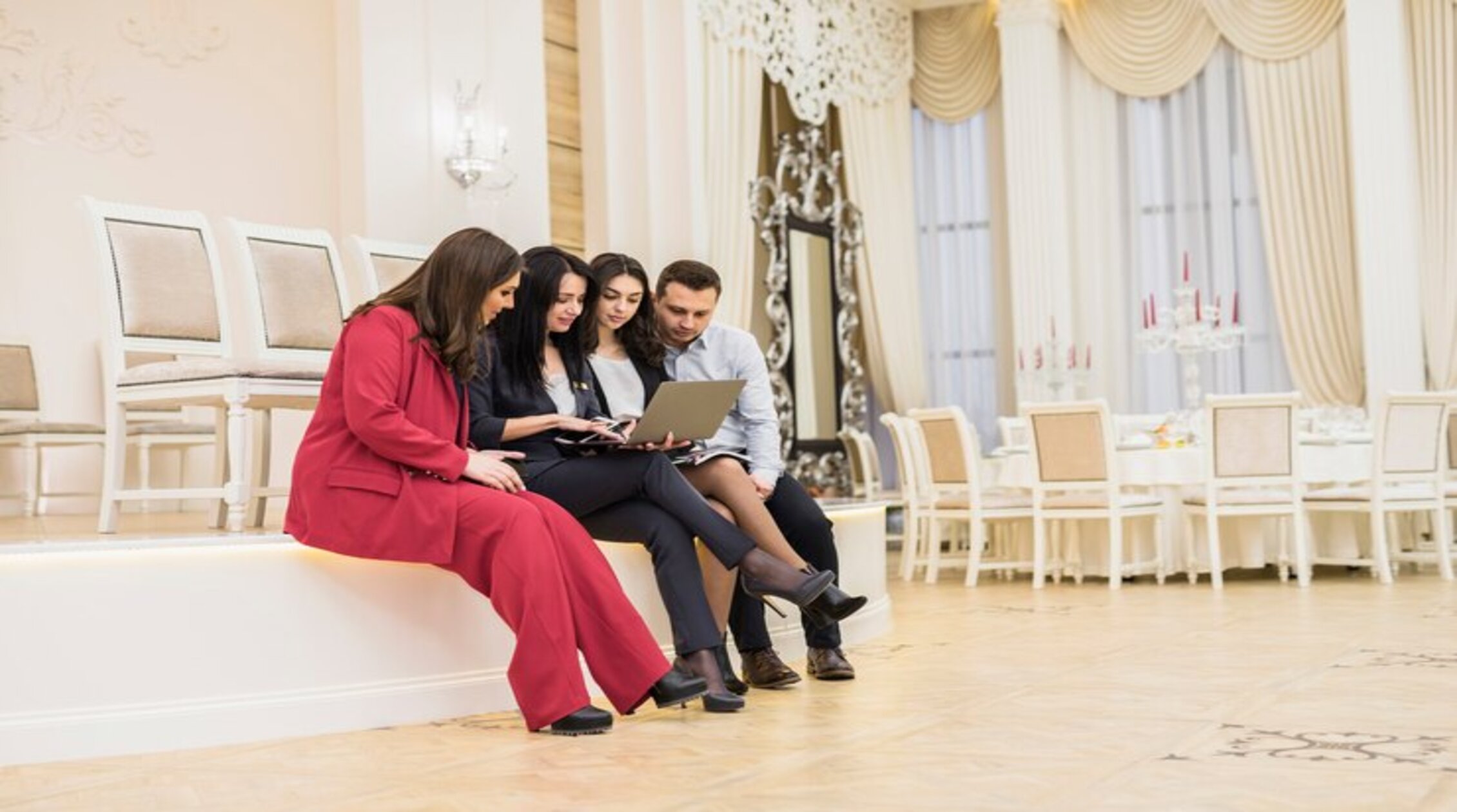When choosing the right venue for corporate events, the significance of the setting cannot be overstated. The venue serves as the canvas upon which the event’s success is painted, setting the tone and atmosphere for the entire occasion. Whether it’s a conference, a product launch, or a networking session, the venue plays a pivotal role in shaping attendees’ experiences and perceptions.
From the ambiance to the facilities provided, every aspect contributes to creating a conducive environment that fosters engagement, collaboration, and the achievement of event objectives. Therefore, selecting the ideal corporate venue requires careful consideration and strategic planning to ensure a seamless and impactful event.
What is a corporate venue?
A corporate venue for hire refers to a location or space available for businesses or organizations to rent or lease for various events or activities. These venues are typically designed to accommodate meetings, conferences, seminars, workshops, product launches, or corporate gatherings.
They range from hotel meeting rooms to dedicated event spaces or conference centers. Renting a corporate venue offers a professional setting with amenities like audiovisual equipment, catering services, and seating arrangements. It often includes support staff to assist with organizing and running the event.
How to find the best corporate venue?
Location and Accessibility
Assess the venue’s proximity to major transportation hubs, hotels, and the convenience for attendees. A centrally located venue with good accessibility via public transport and ample parking options is preferable. Ensure it’s easy to find and reach, especially for out-of-town guests.
Facilities and Amenities
Evaluate the facilities offered by the venue. Does it have adequate space for your event size? Look for features like AV equipment, high-speed internet, ample seating, breakout rooms, and catering services. Check if they align with the specific needs of your event, whether it’s a conference, seminar, workshop, or meeting.
Ambiance and Atmosphere
Consider the ambiance that the venue offers. Does it reflect the tone and style suitable for your corporate event? Some events require a formal, professional setting, while others benefit from a more relaxed, creative environment. The decor, lighting, and overall ambiance play a significant role in creating the right atmosphere.
Cost and Budgeting
- Compare pricing structures of different venues and ensure they align with your budget.
- Be aware of hidden fees or additional charges for services you might require.
- Negotiate where possible and consider packages that include multiple services to save costs.
- Inquire about any discounts available for specific days or times.
Reviews and References
Research the venue’s reputation by reading reviews and seeking references from others who have used it for similar events. This can provide insights into the venue’s reliability, customer service, and overall experience. Visit the venue if possible or ask for a virtual tour to get a better feel for the space.
Combining these considerations will help you narrow your options and find the most suitable corporate venue for your event.
Types of corporate venues
Conference Centers
Purpose-built spaces equipped with meeting rooms, audiovisual facilities, and amenities for conferences, seminars, and large gatherings. They often offer catering services and accommodations for multi-day events.
Boardrooms
These intimate spaces within an office or hotel are designed explicitly for executive meetings, discussions, and decision-making. They usually contain a conference table, presentation equipment, and seating for a small group.
Event Halls/Ballrooms
Grand, spacious areas ideal for large-scale corporate events, such as galas, award ceremonies, product launches, or company-wide gatherings. They often feature high ceilings, versatile setups, and sophisticated decor.
Training Facilities
Dedicated spaces for workshops, training sessions, and educational programs. These venues have tools like whiteboards, projectors, and sometimes specialized equipment tailored to specific training needs.
Business Lounges
Found in airports, hotels, and some office complexes, these spaces provide a relaxed yet professional environment for networking, informal meetings, or work between travel or appointments. They often offer amenities like Wi-Fi, refreshments, and comfortable seating.
Each type of corporate venue caters to different needs, accommodating various scales and purposes of business gatherings.
How to do the budget planning when hiring a corporate venue
Define Event Requirements
Outline your event’s specifics, such as the date, duration, expected number of attendees, and necessary facilities or equipment. This clarity will help in selecting an appropriate venue and estimating costs accurately.
Research and Compare Venues
Explore various venue options to find one that aligns with your event needs and budget. Consider factors like location, capacity, amenities, and additional services offered. Obtain quotes from multiple venues for comparison.
Breakdown Costs
Create a detailed budget breakdown, including venue rental fees, required deposits, additional services (catering, audiovisual equipment, decorations), taxes, and possible overtime charges. Factor in any potential hidden costs to ensure a comprehensive budget.
Negotiate and Clarify Terms
Negotiate with the venue management to secure the best possible rates. Pay attention to contract terms, cancellation policies, payment schedules, and any restrictions or extra fees. Clarify what is included in the quoted price to avoid unexpected expenses later.
Allocate Contingency Funds
Set aside a portion of the budget for unforeseen expenses or last-minute adjustments. A buffer ensures that unexpected costs won’t derail the event planning process.
Considering these points and being meticulous in your planning, you can create a comprehensive budget that covers all necessary expenses and ensures a successful corporate event within your financial parameters.
What should you wear to a Corporate event?
For corporate events, the dress code typically depends on the nature of the event and the company’s culture. Here are some general guidelines for different types of corporate events:
1. Formal/Black-Tie Events: Men usually wear a tuxedo or a dark suit with a tie. Women often wear formal gowns or cocktail dresses.
2. Business Formal Events: Men typically wear a tailored suit with a dress shirt and tie. Women can opt for a tailored pantsuit, a conservative dress, or a skirt suit.
3. Business Casual Events: Men might wear slacks or chinos with a dress shirt (tie optional) or a sweater. Women might wear dress pants or a skirt with a blouse or sweater. Avoid jeans, T-shirts, and overly casual clothing.
4. Casual Events: Some corporate events may permit casual attire, such as intelligent jeans or khakis paired with a collared shirt for men, and casual but neat clothing for women, like a blouse with slacks or a casual dress.
Always consider the company’s culture and any specific instructions provided in the event invitation. It’s better to lean toward dressing slightly more formally than underdressing when in doubt.
Conclusion
Choosing the right venue for corporate events is pivotal, setting the stage for success. The venue encapsulates the essence of the occasion, influencing attendees’ experiences and overall event outcomes. From the ambiance that fosters networking to the facilities conducive to productivity, a well-selected corporate venue speaks volumes about an organization’s professionalism and attention to detail.
It’s not merely a physical space but a strategic asset, amplifying the impact of gatherings, conferences, and meetings. Ultimately, the right venue serves as a catalyst, elevating the corporate event from ordinary to extraordinary, leaving a lasting impression on participants, and paving the way for future successes.



